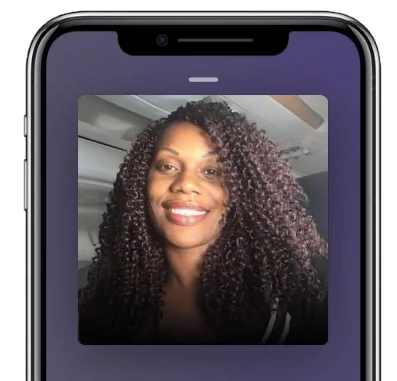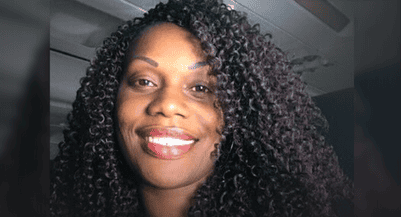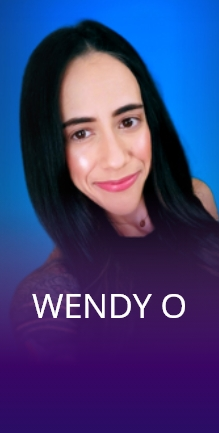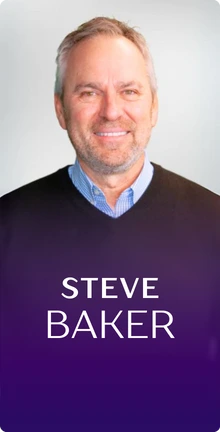In this Episode
- [02:27]Brenda Gentry, who started her career in the financial industry, shares how she got into cryptocurrencies and blockchain technology.
- [09:09]Brenda explains the different types of wallets for storing cryptocurrencies. Then, she recommends which wallet is best to use.
- [15:11]Stephan and Brenda discuss the various ways to make money in the crypto space and the different skill sets required.
- [28:38]How did Brenda become the CEO of BundlesBets?
- [33:19]Which crypto investments are safer and riskier?
- [42:00]Brenda discusses the future of the NFT market and its potential for mass adoption in the crypto space.
- [44:34]Why is Discord popular among Web3 projects for building communities? What social platform does Brenda prefer more?
Brenda, it’s so great to have you on the show.
Thank you so much. I’m very humbled and glad to be here, Stephan.
Please share your origin story, and go back to the beginning. How did you get into cryptocurrencies and all the techy stuff? You didn’t start as a techie, I’m guessing.
No, I did not. I did not start as a techie. I have been everything a mother can do on the side and have had a career in the financial industry for the last 16–17 years, I have spent those years in banking, mortgage underwriting, and mortgage closing. In addition, I’ve been a realtor and had my own title company, so I know all the ins and outs of banking and real estate finance.
Our oldest daughter got me into crypto. She was supposed to study computer science. She went to UT Austin. Mom was happy and sent her off to study computer science because I love the tech field; I just didn’t want to start a new career. I said, “Hey, my girls would probably love STEM,” and they did. They went in, and she navigated to other stuff like crypto and blockchain technology.
That’s amazing. You’ve been covered on CNBC, NBC, and Business Insider. You’ve got a lot of media coverage. How did that end up happening?
That was interesting. It was because of a tweet. It was 2020 when I decided to go deeply into crypto. When we started working from home after the pandemic, since my daughter has been telling me about this crypto—Bitcoin, Ethereum—I might as well buy when the market crashed. In 2020, everything was down. So I took some money from my 401(k) and got into crypto.
My altcoins started doing better than my blue chips. I was looking at everything and decided I wanted to do it full-time. I wanted to make a career out of crypto because all the time, all I heard was it was a scam. I heard other people say they were rug-pulled, which means you get into a project, and nobody’s there the next thing you know. The founders have disappeared.
The lack of a needed middleman is amazing in the new crypto technology. We are on the ground level of this breakthrough technology and its assets. Share on XTo cut a long story short, I was in my living room last year and was so blessed to be able to make good gains in crypto in a year. So I decided to put in my two-week notice. When I put in my two-week notice, I put it on a tweet as a flex. My daughter’s like, “Mom, you’re too old to flex.” I’m like, “No, I’m not.” That tweet got to CNBC and Business Insider. They follow crypto stories, which went viral, so they picked that tweet up and decided to interview me.
That’s awesome. You came from Kenya. How did you end up in the States? What are you doing for your friends and family in Kenya to help them to get on the blockchain bandwagon?
I grew up in Kenya. I spent 18 years of my life in Kenya. When I left Kenya, I was on my way to Germany to study there. I was there, and I met my husband. We’ve been married for 24 years. We’ve been together for 25 years. Our oldest daughter is 24.
When we left Germany for the States, I decided I had to bring my parents into financial literacy because many people back home still believe that you should make money and retire at a certain age and live. It’s normal to be paycheck to paycheck. I didn’t think this was what I wanted to raise my children, thinking it should be paycheck to paycheck.
I wanted to provide a way for them to be entrepreneurs. I wanted them to think bigger than work in a cubicle, which is nothing wrong with that. My husband and I have been doing that for over 20 years. I just wanted my parents to explain to their grandchildren, my nieces and nephews, that there was a better way than just telling them to go out, make a career, and depend on that.
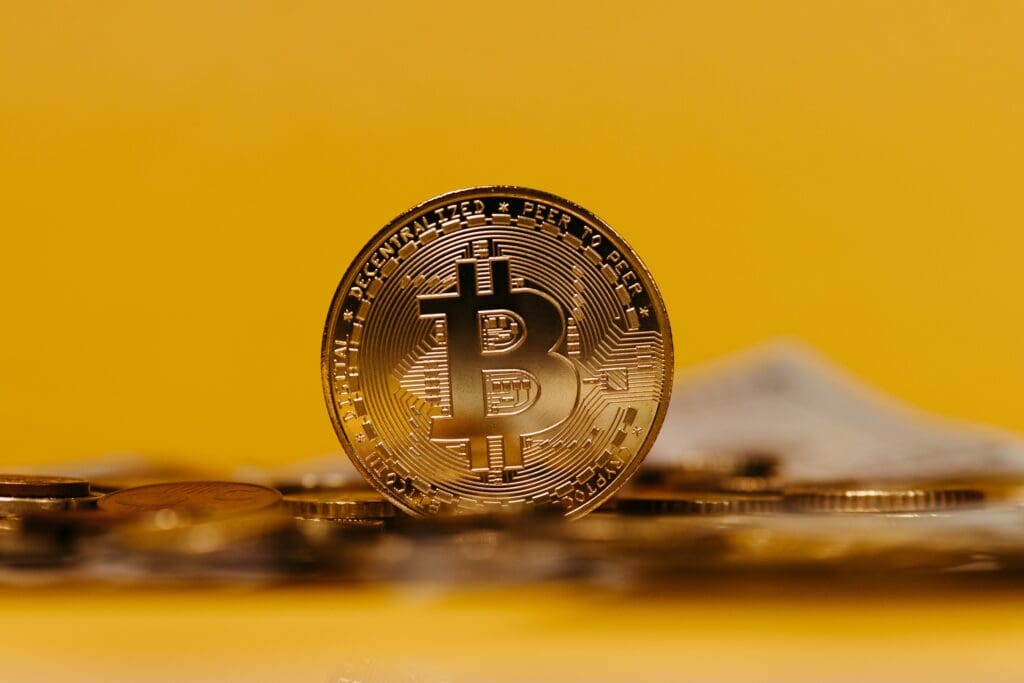
That’s why I decided to go into crypto when I discovered that there was no middleman, it was a new technology, and we were on the ground level of this breakthrough technology. It’s a new asset class. My parents and my family in Kenya all had to get wallets. I told them I was not sending them money via Western Union.
I used to send money via Western Union, but I don’t do that anymore because sending it through crypto takes minutes, and I don’t have a middleman. So that’s how they all got into crypto because I told them that if you want help, you have to get a wallet. So that’s how I’m helping them get into crypto and different tokens and how to get deeper into the technology.
There are different types of wallets and different ways of storing your crypto. You can keep it on an exchange. You could put it into a wallet that has multiple currencies and tokens. You could put it in a wallet specific only to one currency. You could put it on a hardware device or a hardware wallet.
Of course, the crypto is on the blockchain, but you can store the private key on a hardware wallet, like a ledger. There are different ways of doing this and various security implications.
When advising friends, family, clients, and colleagues to get a wallet, what approach are you advising them to take? Because some of these approaches are complicated for a non-technical person.
As a mom, getting my first wallet took two days for my daughter to explain. Once she explained it, she had to walk me through it. When she wasn’t here, I was like, “Okay, I can’t access my wallet because I don’t even know how.”
I know I’m not in my 20s; I’m 46. I don’t store my money on a centralized exchange. When I say centralized exchange, I mean coinbase.com. I move my money straight to MetaMask or Coinbase wallet. I love the Coinbase wallet.
Now we’re talking about hardware. I have my ledger. We’re talking about hard wallets. Only 1% of people in the US have wallets, according to a previous study of about 29 million people who know about crypto or even have wallets.
I walk my family through setting up a wallet and tell them your seed phrase is you can’t do anything without it. This is like gold. You must store it well and ensure you don’t give it to anybody. Unfortunately, even the best of us, even my daughter, after bringing me into crypto, also got hacked. Her wallet got compromised because she gave out her seed phrase when trying to move currencies around and didn’t think about it.
When you’re working with someone or trying to help someone, and you forget something you’ve been doing for so long, you can get compromised, even if you’ve been in the industry for three or four years. My daughter knew exactly what she was doing, but she also got compromised. So it’s just teaching people how to take their time with it.
You have to take your time with crypto.
That’s great. Presumably, you send crypto to a new address, send a small test amount, ensure it arrives safely, and then send the full amount.
There you go. You do know crypto, then. You know a lot of cryptos, I’m sure.
I know a few things.
Some people don’t even do that test amount. They send blindly. At least, you know, you’re going to do that test amount.
But I’m curious if you have any altcoins that are not obvious in the top 100. Still, ones like a dark horse that many folks are not familiar with, that is a favorite or something that you’re particularly bullish about.
There are so many I’m bullish about. It depends on how long they are looking for a return. If you’re looking at a year, I would say BundlesBets. I’m bullish about BundlesBets (disclaimer) I’m part of the team. I’m only going to speak about a project that I know well.
If something goes down, you can come back to Brenda Gentry and say, “Hey, listen, you told me this was going to do this and this.” I’ll take the blame for that because I’m part of the team. It has to do well because it’s my project.
BundlesBets is the first US-licensed sports betting platform.
I’m bullish about BundlesBets because it’s the first US-licensed sports betting platform. We are currently licensed in 5 States, and we’re looking to get gaming licenses for sports wagering in the US as well.
That’s so cool. My oldest daughter is in the same industry as me. If a prospect comes through that isn’t a fit for me and perhaps doesn’t have the budget to hire me out for SEO—I’m an SEO expert—then I’ll pass the lead on to my oldest daughter.
That’s awesome. Isn’t that nice that the family is in the same likeness?
I’d love to hear what the differences are for our listeners regarding the buy-and-hold type of investing in crypto, passive income and trading, and finally, developing a career in this space. Those are very different things. You could do all three, or you could do just one of them.
These get interchanged. They’re muddied in people’s minds because one may apply to the other, but they’re different. If you’re talking to people about crypto, they think, “Oh, you just put money in, and then it just turns into a million dollars like magic.”
No, you can actually become a project lead for a new crypto project, or you could become an advisor to Web3 companies, or you could essentially do day trading in crypto, or you could do play to earn gaming and make money like a lot of people in the Philippines are playing Axie Infinity and making more money doing that than they were at an actual job.
You mentioned three things—buy-and-hold, passive income, or just finding something to do workwise in Web3. I’ve done all three, so I can speak to that. Every age group is different.
My daughters are in their mid-20s. Do you know that this is just for them to start a career? It’s going to be a career because they love crypto, anything different from being in this space, learning. So if someone offers to consult or wants them to do something, this space needs writers.
Crypto is still in its infancy and will continue to evolve. If you assume this virtual currency is a quick way to make money or day trade, you should learn crypto’s nature before investing. Share on X
This space is for people who can do marketing. This space needs women developers. We have a lot of male developers, but we don’t have enough women. Blockchain, we need women who can learn Solidity. There is a new language. I forgot the name of it. There’s a new coding language that’s being used right now.
When people think crypto, they think, “Oh, I just want to get into crypto to invest and to make money or to day trade,” but this space is like a baby, evolving. You can come in, be on the sidelines, watch in this space, or get involved.
Some people are telling you, “Well, I’m still holding. It’s not been easy, but I’m still holding.” That’s what distinguishes the people who are making it and those who are not going to make it: how can you weather these highs and lows?
Yeah, it takes a lot of intestinal fortitude.
Tell me about it. It gets interesting.
From a marketing perspective, I’m noticing many of these Web3 companies, these various projects, whether they’re NFTs, play-to-earn games, cryptocurrencies, or service providers to the Web3 community. They all have this cookie-cutter approach to their website. They seem to all have a black background, a lot of wasted screens, real estate, and spinning 3D nonsense that doesn’t convey anything valuable.
They post all their best thought pieces on medium.com instead of on their websites. They’re all using Discord for their community and building it on rented land. They’re making a lot of mistakes with their online marketing.
It inspired me and my friend, Greg Merrilees, who ran Studio1 Design and was a past guest on my other podcast, Marketing Speak. So we decided to launch a website making fun of these cookie-cutter Web3 websites, which we call the Worst of Web3. It just pokes fun at all these projects.
This crypto space needs women developers.
Back in the day, there were the marquee flashing banners, scrolling banners, websites and splash pages, and all this nonsense. Parody websites were like all the worst kinds of silly things from the early web. All put together on one website, just us poking fun. We essentially did that. It’s funny.
We’ve gone on Medium to write important stuff. Should we switch that to the website? Do you know what I’m saying? Where would we put it on the website?
You’d have to set up a WordPress blog on your website so that it’s part of your website and not drive traffic and link authority over to medium.com. They’re doing fine. You don’t need to help them out anymore. You need the links pointing to your website. Having that stuff hosted on your website on a WordPress blog is a much better approach.
I’m going to write that down. I think I just got something.
I know we’re getting close to time here. If there was an obvious next step for our listeners to take if they’re not sophisticated when investing in cryptocurrencies, what would it be? Part two is, what if they are pretty sophisticated? What would their next step be in that case?
For new people who are coming or brand new to crypto, there are tools. I know bankless.com is one way to get started. They have very good material. I began by listening to YouTubers. But nowadays, I don’t see many people helping you or directing you on how to get started or get into this space.
That’s cool. Awesome. What about our more sophisticated listeners? What would be a good next step for them to take their crypto knowledge and potentially their profits to all-new heights?
Twitter is a good place to find good tokens. Many of them are not just shilling projects to shill and make money. The one I got into was at a very low market cap. It still is because we’re building.
Yeah. There’s a great crypto educator on TikTok who was a past guest on this podcast, and that’s CryptoWendyO if you’re familiar with her.
I know her. She’s very good on Twitter as well. CryptoWendy?
Yeah.
Yeah. We met in Miami last month. A very nice lady. She’s really good. I like her a lot, too. I like her content.
Yeah, she is. Yeah, she was a guest.
If you have a passionate, big dream, God (or the Divine) will make a way for you to realize this dream. Share on XHow did you get the coverage on CNBC, NBC news, and all that?
That’s quite a story. In the spring of 2020, when everybody was home because of COVID, I was working from home, my husband was working from home, and my daughters (both of them) were also home. Every day we woke up, we would talk about the possibilities of trading because Cynthia was, technically, at that point, making more money than I was. After so many years in corporate America, I’m looking at her like, “Hey, how can you get so much money in your Zerion wallet? What are you doing?”
She says, “First, mom, you have to learn step by step. You have to start getting a wallet. You have to start getting used to what DeFi is.” I was like, “What is DeFi?” She says, “DeFi is decentralized finance.” I’m like, “Is it the opposite of what I’m doing in the bank?” She says, “Yes, it’s the opposite.”
There I go. I started doing a deep dive, and I started taking online classes about decentralized finance, and I found out that I’m so passionate about it, about decentralization. I think, “Well, the dollar’s been around for almost a hundred years. It’s time for a new asset class.
Why not crypto be this asset class? My mind is saying this is innovative. This is just amazing. I don’t know why I had closed my eyes to crypto and not paid attention to the technology behind crypto. Blockchain technology surpasses anything that is crypto or what we know about crypto.
That’s what I focused on. I focus on technology. Next thing I know, I’m telling my bank I think I’m about to do this full-time. My colleagues are looking at me like I’m crazy. Why would you do that? Why would you leave a stable career to go into crypto?
Blockchain technology surpasses anything crypto or what we know about crypto.
At that time, it was DeFi Summer. August 2020 was the boom of Defi summer. Tokens that had launched at the beginning of the year had made many of my daughter’s friends millionaires, and my daughter was like, “mom, I had told you about this, and you didn’t study it.” So now a lot of my friends just became millionaires. I’m like, “Oh man, I missed the boat, so I need to take this stuff seriously.”
FOMO, that’s a dangerous thing.
I’m very visual, so you know what she would do, Stephan? Her friends would say, “Okay, let me send you a snapshot so you can see my balance.” I’m like, “A million dollars, and you’re 26 years old. How is that happening?” She got so busy that summer that she didn’t have time to help me learn how to get different tokens and navigate the industry.
Then I say, “Okay, if you can’t help me, can you at least guide me to a community I can learn from?” So then, I started joining Telegram. The next thing I knew, people were very outgoing in those telegram chats. A lot of them are crypto bros. They’re like, “Okay, so we have this mom here, and we have this daughter here, and they’re trying to learn, so we will help them.”
We find tokens we like, and I decide, “Okay, I love to do this and invest some of my 401(k) money into crypto.” That one particular token does well during the next year. I decided to do this full-time when that story came out on NBC. That’s when I got on NBC.
I tweeted about leaving my day job, and an NBC reporter said, “Oh wow, that’s quite a story. So many people leave their day jobs, but they make around $70,000–$80,000 a year. Why would you leave that for an industry that’s very volatile and unsure, and we don’t know about the bear markets? I said, “I just feel confident in what I’m doing.” That’s how the story got to be on NBC.
That’s awesome. Well, congratulations on that. Was that a life-changing thing, that media coverage?
Yes, it was. I enjoyed entrepreneurship. What most people don’t know is that I was an entrepreneur before. I had a mortgage company before the 2008 economic crisis. I had to go back and work because, at that time, all the mortgage industries we worked with had gone under. I had missed being an entrepreneur and wanted to become that again. I didn’t know that it would happen so fast.
I said when I turn 55, I’ll be an entrepreneur again, but I was 46, and I’m like, “wow, that happened real quick, ten years sooner than I expected. Almost ten years sooner than I expected.” I enjoyed it.
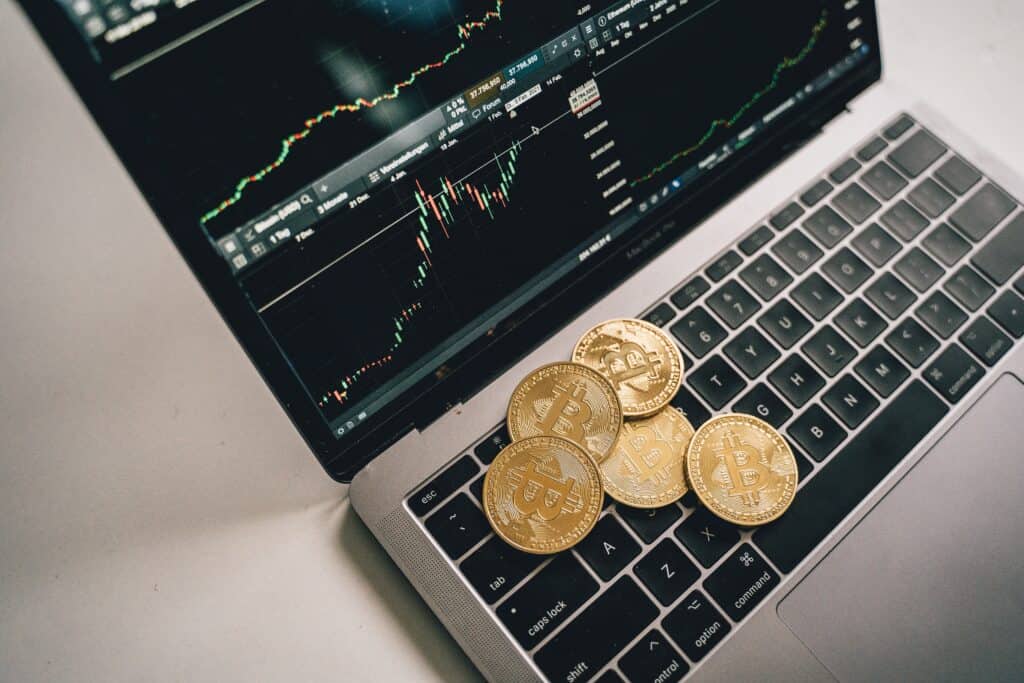
I enjoyed that I could help my parents. My mom would finally retire. She would finally retire because my dad had retired and gone back to work, but then he retired again because he was getting to be 75. My mom was in her 60s and felt like, “Okay, I just gotta keep going so I can get my pension.”
I was able to say, “mom, you don’t have to work yourself to death, technically. You can retire now.” I was able to make that possible. I thank God for that. It’s been really eye-opening. And a lot of opportunities came about actually from that.
How did you end up being the CEO of BundlesBets?
My life is just full of dreams. Whenever I have a big idea and tell myself this is something I want to do, God makes way for me to do that. I’m a faith-driven person, by the way. I’m grounded in my faith. When I get into crypto and sometimes even on my Twitter, many people tell me, you can’t mix this. This is an industry where you can’t mix faith.
I don’t care what industry I go to; I must mix faith in this industry because this is all I know. It may not apply to other people. Maybe you can’t mix that in finances, but that’s all I know.
The token that I liked was the BundlesBets token. It was a prediction project where we predicted the price of what Bitcoin would be next week, Ethereum, and several top-five tokens. You get into a pool, and the top people, the money they lose goes to the people who predict where 80% goes to the top three. I liked that project. I just really liked the community.
I don’t care what industry I go to; I must mix faith because this is all I know.
The founder and I became good friends when I got into the community. Simon and I became really good friends. He’s British and based in Thailand, and we used to talk every day, and he was getting into NFTs then. That was the end of 2020 and the beginning of 2021 when nobody was talking about NFTs. He was really into NFTs.
Long story short, he did so well. In 2021 he did really, really well. The NFTs he probably bought for $3000 were now valued at $250,000. He was slowly unable to be 100% into the project or the DeFi projects.
DeFi is 24/7. People want to get answers every hour.
He was doing well. He’s like, “I don’t think I can keep up with this.” He knew how much I was invested in the project because I was one of the top holders of the token. So to him, I would be the best person to take over the project.
Last year when we went into a bear market, I was relieved that we were in a bear market. People were like, “oh man, it’s crazy.” We’re in a bear market, but the best time to build a project is in a bear market. No noise. Nobody’s rushing you to get something out by a certain time because guess what? Things are happening, like why are you rushing to launch, and the market is down.
While most people were sad that we were in a bear market, I was very, very peaceful about it. I had set aside some funds from the bull market, so I wasn’t caught unaware. I was unaware of how fast Bitcoin tumbled from $60,000 to $20,000 and below, but I wasn’t really anxious that anything would shake me in what I believed and what I was building. So I quickly focused on the build, which we did.
That’s awesome. Congratulations on that.
Thank you.
Which investments are safer than others in crypto, and which are much more risky and volatile? There’s a lot of volatility in the market, but you will have less volatility with Bitcoin than with some obscure Altcoin. I would like to hear your take on diversifying your portfolio, where to focus, and where not.
The best time to build a project is in a bear market. There’s no noise, and nobody’s rushing you to get something out by a certain time.
That’s a good one. That’s a good question. Usually, in the bear market, you see everybody making moves to leave, getting ready to leave. This is dead. It was a Ponzi. We didn’t think it would last. It was a good 14 years, or however long it ran for Bitcoin.
One thing I’ve noticed is that even with the volatility of Altcoins, let’s take Polygon, Matic. Matic is an Altcoin because if you’re not a major or not Ethereum or Bitcoin, you are an Altcoin. Layer ones or layer twos are really good; Polygon and Solana. Solana got shaken a bit because it had investments from SBF and FTX. Even with that, we’ve seen the top five.
Believe it or not, Shiba Inu, a meme coin, and Dogecoin, a meme coin, are still standing regardless of how they moved or how much money has left the industry or this asset class because of fear of whether this is a real thing. Because of the regulations, the SEC was now more focused on stablecoins when Terra Luna collapsed.
These are the ones that I focus on, and many people moved their money to stablecoin. They just said, “I’m coming here for a year. I’m not going to worry about whether ETH is at $700 tomorrow or will be at $1800 the next day.” People didn’t want to deal with that. They just wanted to store their money where it wouldn’t matter. So those were the two big ones—USDC and USDT.
For those who didn’t want to do anything when there was so much volatility and the news glaring all over this industry and saying that it’s just a Ponzi, it’s a scam. For us, I’m looking and like, “Okay, you guys can call it whatever it is. You don’t know how it’s changing lives for us.”
There’s a big wealth gap in the African-American community. Why would you not just educate yourself about it? How is it different from the Enron scandal? How is that different from Madoff’s scandal?
We didn’t stop using securities. We didn’t stop using the stock market because Madoff scammed many people. We didn’t stop investing in stock, but they want us to stop investing in crypto because we have a few bad actors that were here to mess up the industry. They’re not here because they got caught doing the wrong things.
For us who are investing the right way and looking for tokens that will surpass the next bear market or that will be here for the long term, they’re going to do well.
I’ve heard that 90% of cryptocurrencies and tokens will probably die off or go bust. If that’s true, how do you identify the fewer than 10% who are the winners or those who can stand the test of time?
This industry will do well for us, who are investing correctly and looking for tokens that will surpass the next bear market or be here for the long term.
We hear that a lot and that 90% will die down. I agree with that. Right now, we have 12,498 different kinds of tokens. When I got into crypto in early 2020, it was half that, about 500-6000, and we’ve doubled that in three years.
What I know is that a lot of people in the last 12 months, a lot of projects could not handle the bear market or were not prepared for the bear market. They couldn’t pay their people. I don’t know how CoinGecko will tackle the 12,000 lists and clean out the irrelevant ones, but I know that probably 30% or 40% of those are no longer tokens that anybody is discussing.
We’ll know who the 10% are at the next bull market. When the next bull market starts, the people who stayed around, the people who were still building those projects, you’re going to notice that the same thing happened in 2019. The ones that were there from 2015 and continue to build on came up, and they surpassed expectations.
Ethereum was one of them in 2015. XRP is still around even with the SEC about to give the verdict, whether it’s a security or a commodity. We’re going to find out this year. The Cardano community is very strong and very vocal on Twitter, too. It’s been tried and tested.
If you look at the top 20 or the top 30, those are not going anywhere unless something crazy happens, like Terra Luna, where there’s a deepegging of the token or destabilization of the project. Then you’ll see one fallout of the top 10.
Some tokens are not in the top 10 or top 20 that are coming up with fundamental technological changes. They’re building things that you are like, okay, wow. They’re doing this with real estate.
Those are industries that, if you are building a project, tap into, for example, real estate. I’m thinking of the next 5–10 years. I’ll see people buy their homes or use them as NFTs. It’s crazy stuff that people can do with this new technology, but 90% of we’re not going to see it at all. But when we determine the 10%, give it until 2024, the next Bitcoin halving, and you keep hearing this project’s doing this, this project’s doing that. That’s how we know which projects stood the test of time. That’s a long-winded answer, but I hope it clarifies.
Awesome. What do you think about the NFT space or non-fungible tokens? I know you were very involved heavily in that. Is it going to be even more decimated than the cryptocurrency market with 10% left standing, but instead, it might be 5% or 3% left standing in the NFT world? Is it going to mirror pretty much the cryptocurrency token side of things?
Now that one’s interesting because NFTs are what we hoped would still bring mass adoption to the crypto space. And it will because it’s so easy to learn NFTs versus the DeFi side of things or how to trade. It felt like the Wild West. 2021 felt like, especially towards the end, every time you turned around, everybody and their mama was launching an NFT project.
In crypto there’s a saying: Without testing, there is no testimony. Share on XPeople you meet at a conference are like I just quit school. I’m going to start my NFT project. We saw a lot of running to find gold as people did in the 1800s when they found out, okay, there’s gold in California, where we go striking rich. We saw a lot of that, and some projects were crazy.
We knew the bubble would burst, and it was a matter of time before it burst in 2022. The ones that were not here or the ones whose projects were not here to stay if you got on those Discords, there was nobody. The founders took the money and ran.
With NFT projects, especially, it would be even 5%. Tokens would be 10% because you can withstand the test of time without getting hyped in a community. But with NFTs, that’s how you make money. That’s what they do. So you got to get hyped from a community.
If there’s no community to get hype because all the NFTs they bought are worthless, there’s nothing you can tell them to do until they see that the market is starting to get back up, but they’re not investing money in it again. They just came in, they heard about it, they bought the NFTs, and many of them are worthless in my wallet.
You mentioned Discord. What about Discord that all the different Web3 projects build their community on Discord and not on some other social platform.
I don’t know. When I got into crypto, I preferred Telegram, but the scammers are getting way out of hand. Now with Discord, it has implemented a lot of security, and just now, Telegram is starting to do that. After all the NFT projects that were getting launched had been using Discord. It’s like following the leader. Everybody’s using it. It’s working.
You can put 250,000 people in there. We don’t know if they are people or bots, but you can put them all in there and make it work because it just makes the project feel like this is a crowd of people. They’re into my project, and I can get them hyped.
There are so many things that they do to get people hyped. For example, you can have a rapper show up or a billionaire like Elon Musk stop by and say “hi,” and people go crazy. Stuff like that is what attracts more communities to Discord. That’s why crypto projects or Web3 projects prefer that.
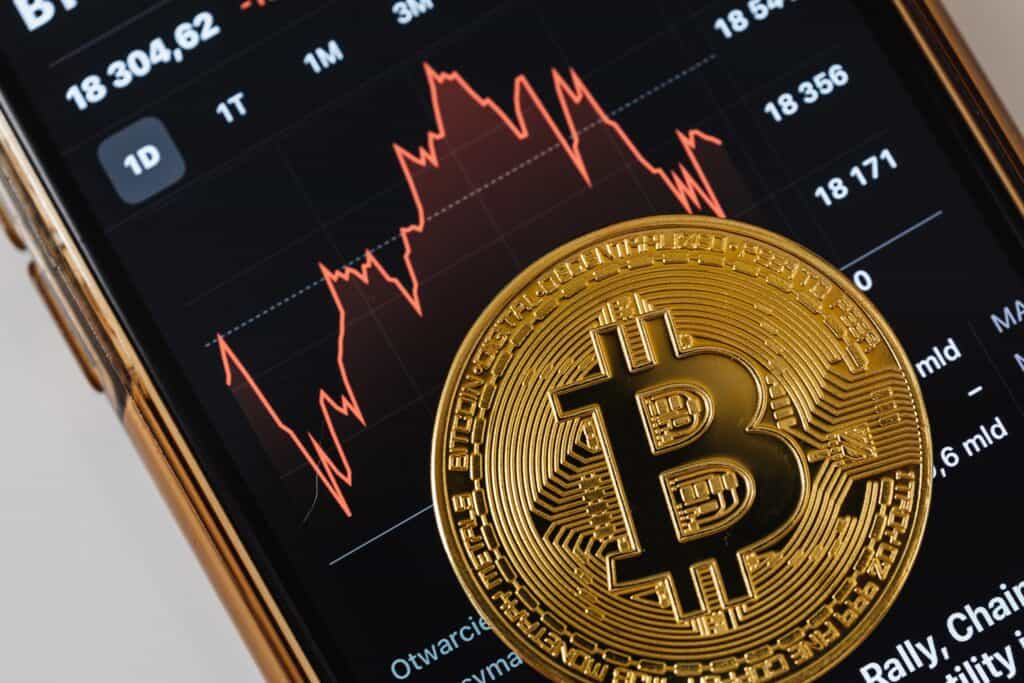
Are you more active on Discord or Twitter?
Twitter. I’m the least active on Discord. I’m more active on Telegram because my community was solely on Telegram until last year. We just started sending people to Discord, but I like Telegram.
What do you like about Telegram?
When I wake up and look at all the chats I need to respond to, it’s all in one place. On Discord, maybe the layout confuses me, as in what chat was this again? Then I have to click on it to look and see.
Sometimes it’s the layout or the way it is. With Telegram, I know that if someone DMs me fast, they’re usually a scammer. I’m on high alert if they’re trying to offer me anything fast.
Wow. I know we’re getting close to time here. I’m curious to hear your take on play-to-earn games and how that correlates to what you’re doing with the sports betting side of things.
I love play-to-earn. The first play-to-earn that did so well also got hacked. Their bridge got hacked. Axie Infinity. I don’t know if you remember that. Last year, they lost close to over $400 million. I don’t know.
They recovered some, but they’re coming back. I’ve been watching it. It’s getting back up. And not only will Axie Infinity be a game changer when the bull market comes back, but I’ve seen so many good ones coming.
We have a team of attorneys helping us stay compliant because we want to make sure we are doing everything right.
There’s not only play-to-earn. There’s move-to-earn. Have you heard of that one where it’s like fitness, and then you use fitness-motivated NFTs? You have to move, you have to do something, and then you earn. So you’ll have some tokens.
Those are going to be interesting. It’s move-to-earn or step-to-earn. It’s one of the two. Play-to-earn is going to be in the next bull market. That’s what would make a big dent, at least in the NFT space. It’s not just NFTs that you hold, but you have to do something to earn money.
I know the SEC or Gary Gensler. They’re breathing hard in space. I suggest a lot of people get legal counsel. It’s very important. We’ll let you know how to stay compliant and what not to do. People are launching tokens without utility and thinking they can add staking. That’s one thing that the SEC is paying attention to.
I’m glad we have a team of attorneys helping us stay compliant, away from their eyes. We want to make sure we are doing everything right. We’re going to get the licensing right. We’re going to get our token. Everything is by the book, done right, the correct way. This time, we will make sure a top-tier company does even the auditing of all the smart contracts.
Awesome. Well, good luck with that. It sounds like an exciting phase of your business and your life coming ahead.
Yes. Thank you. It’s a good year. I can already feel it. 2023 is a year for us.
All right. If our listeners are interested in learning more about investing in crypto and investing in your token for BundlesBets, if they’re interested in following you and seeing more content from you, where should they go?
I am more active on Twitter than on any other platform, @MsCryptomom1 is my Twitter. And at least right now, I’m verified. It’s easier to find me. Before, I wasn’t, so Elon Musk made it easier for us. If you see me on Twitter, make sure it’s the one with the blue checkmark. It’s Cryptomom @MsCryptomom1.
So, @MsCryptomom1.
Yes, @MsCryptomom1. And regarding the token, everything on my bio would have BundlesBets. So if they click on BundlesBets, they can find us on Telegram. We’ll also be sponsoring some conferences, so we’ll be traveling, probably to several places this year.
Awesome. Well, congratulations again, and thank you for sharing the wild ride you’ve been on with such vulnerability. It’s not only inspiring but also sobering for our listeners. I need to protect my wallet. I need to be protecting whatever setup I have. I should be using a VPN. Whatever sorts of things I need to do to protect myself, I better start doing this. This is a warning. This is a warning to get your house for me. That’s how I’m taking it, too. Thank you very much.
Thank you. Thank you for the interview and for allowing me to visit your podcast. Without a test, there is no testimony. My life is that.
That’s a great quote. I love that. Without a test, there is no testimony. Beautiful.
Yeah.
Well, listener, get out there and do some good in the world. Make a difference, and we’ll catch you in the next episode. I’m your host, Stephan Spencer, signing off.
Awesome.
Important Links
Connect with Brenda Gentry
Apps/Tools
Business/Organization
Cryptocurrencies
People
Previous Get Yourself Optimized Episode
Previous Marketing Speak Episode
YouTube Videos

